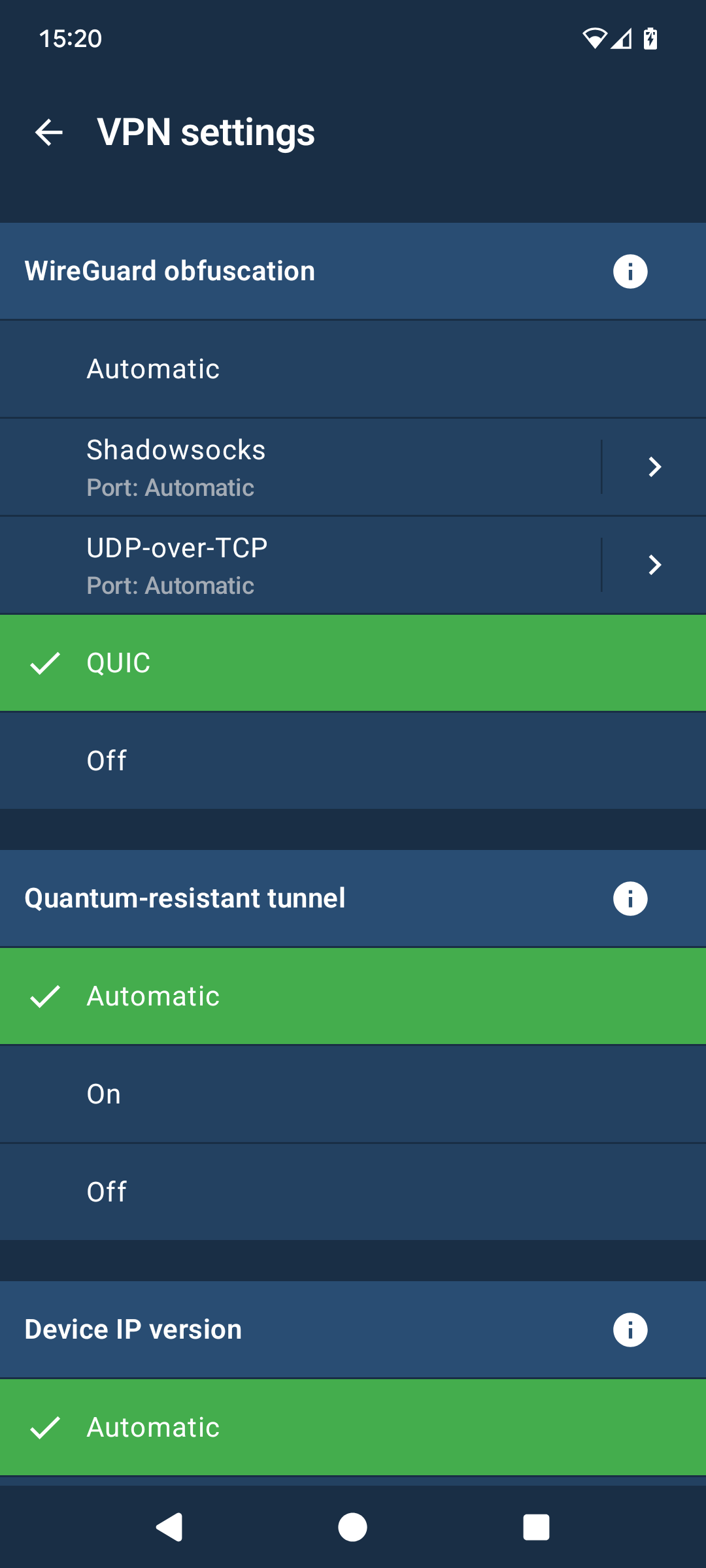A concise presentation on QUIC which was just added to Mullvad VPN and how it works to stop VPN detection and firewall blocking. Primarily this is a concern for people in countries like Russia, China… Though, even in “free” countries like the US, ISPs are using deep packet inspection to fingerprint what sites you’re using even if using a VPN and encryption, all because that data is valuable. And all these megacorps are acting as the arms of government, gobbling up data that then gets sold to governments evading constitutional safeguards. So if you care about privacy, I can’t recommend Mullvad VPN enough, and you can pay anonymously with Bitcoin, Lightning, and Monero. Also, for people in western nations, they have DAITA, Defense against AI Traffic Analysis, which adds noise and makes all packets the same size… Consequently, Michigan is floating a law to make VPNs illegal, so QUIC could become necessary in the US.
https://mullvad.net/en/blog/quic-obfuscation-now-available-on-android-and-ios
QUIC Obfuscation now available on Android and iOS
We are pleased to announce that our latest obfuscation feature, QUIC, aimed at helping users bypass firewalls and censorship, is now available on Android and iOS.
Our QUIC obfuscation tunnels WireGuard traffic, making it harder for firewalls to detect and block it. With this update, our app should become more usable in countries and networks where WireGuard traffic and our other obfuscation methods are restricted or blocked.
How to Enable QUIC Obfuscation
To use the new QUIC obfuscation, make sure you have at least version 2025.8 on Android or 2025.8 on iOS.
With the default settings, the app will automatically try QUIC after a few failed connection attempts. You can configure the app to always use QUIC obfuscation by following the instructions below.
- Go to Settings → VPN Settings → Wireguard obfuscation → QUIC.

You can read more about QUIC and our QUIC obfuscation here.
This feature is only required if you have trouble connecting, or are located in a restrictive location. There are no performance or privacy benefits of enabling this feature.